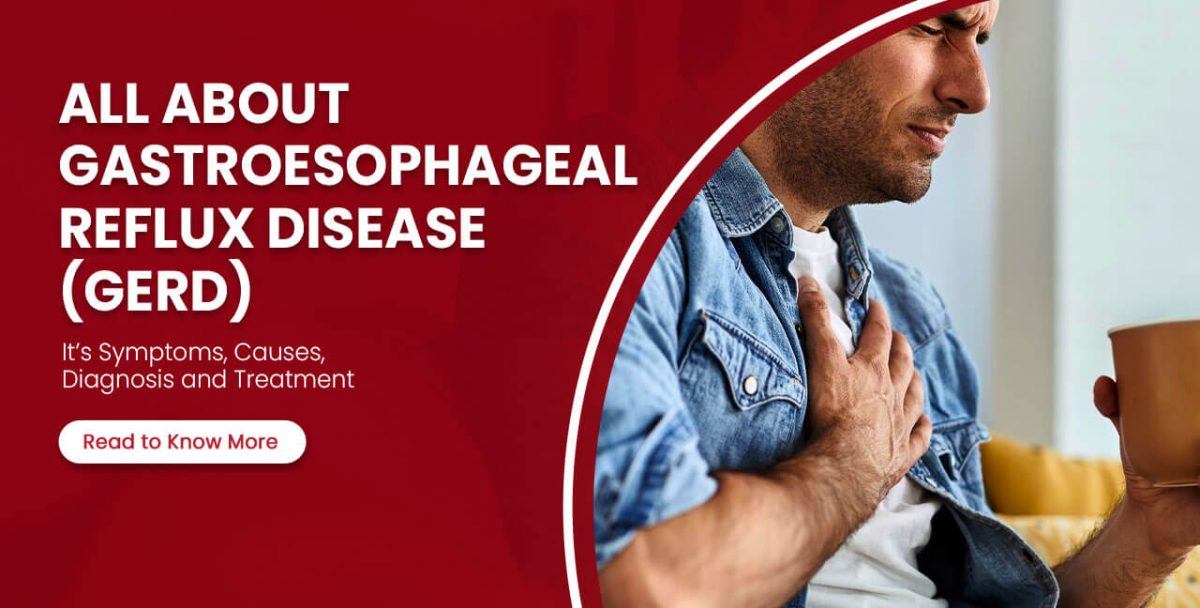
GERD (Gastroesophageal Reflux Disease), is a common digestive disorder that affects millions of people worldwide. While occasional heartburn is a common experience, persistent and severe acid reflux can significantly impact one’s quality of life. In this blog post, we will delve into the intricacies of GERD, exploring its symptoms, causes, diagnosis, and treatment options.
Understanding GERD
GERD is a chronic condition characterized by the backflow of stomach acid into the esophagus. The esophagus acts as the connection between our mouth and stomach and flows between the two organs. Normally, a muscular ring called the lower esophageal sphincter (LES) prevents the contents of the stomach from flowing back into the esophagus. However, in individuals with GERD, this sphincter weakens or relaxes abnormally, allowing stomach acid to escape and irritate the lining of the esophagus.
Common Symptoms of GERD
Heartburn: The hallmark symptom of GERD, heartburn, is a burning sensation in the chest that often radiates to the throat. One might experience it after a meal or while lying down.
Regurgitation: Individuals with GERD may experience a sour or bitter taste in the back of the throat as stomach acid regurgitates into the mouth.
Chest Pain: The chest pain associated with GERD can mimic the symptoms of a heart attack, leading to anxiety and concern. It is crucial to differentiate between GERD-related chest pain and cardiac-related chest pain.
Difficulty Swallowing (Dysphagia): Persistent irritation of the esophagus can lead to difficulty swallowing, a condition known as dysphagia.
Chronic Cough: GERD can trigger a chronic cough, as stomach acid irritates the airways and stimulates the cough reflex.
Common Causes of GERD
Hiatal Hernia: A hiatal hernia occurs when a portion of the stomach protrudes into the chest through the diaphragm, contributing to the weakening of the LES.
Obesity: Excess weight, especially around the abdomen, puts pressure on the stomach, leading to the weakening of the LES and an increased risk of GERD.
Pregnancy: The hormonal changes and increased pressure on the abdomen during pregnancy can contribute to the development of GERD.
Smoking: Tobacco smoke can weaken the LES and impair the function of the esophagus.
Certain Foods and Beverages: Spicy or acidic foods, chocolate, caffeine, and carbonated beverages can exacerbate GERD symptoms.
Diagnosis of GERD
If you suspect you have GERD based on persistent symptoms, it is essential to seek medical evaluation. Your doctor may advise the following tests to diagnose this condition.
Endoscopy: A thin, flexible tube with a camera (endoscope) is used to examine the esophagus for signs of inflammation or damage.
Esophageal pH Monitoring: This test measures the level of acidity in the esophagus over 24 hours, providing valuable information about acid reflux episodes.
Barium Swallow: This imaging test involves swallowing a chalky liquid containing barium, which coats the esophagus and allows abnormalities to be detected on X-rays.
Treatment Options for GERD
Lifestyle Modifications: Making certain lifestyle changes can significantly alleviate GERD symptoms. These may include weight loss, avoiding trigger foods, elevating the head of the bed, and quitting smoking.
Medications: Over-the-counter antacids, H2 blockers, and proton pump inhibitors (PPIs) can help reduce the production of stomach acid and alleviate symptoms. However, long-term use of PPIs should be monitored by a healthcare professional.
Surgical Intervention: In severe cases where lifestyle modifications and medications are ineffective, surgical options such as fundoplication may be considered to strengthen the LES and prevent acid reflux.
Gastroesophageal Reflux Disease is a prevalent condition that can significantly impact an individual’s daily life. Recognizing the symptoms, understanding the causes, and seeking timely diagnosis and treatment are crucial for effective management. By adopting lifestyle changes, exploring medication options, and, in some cases, considering surgical intervention, individuals with GERD can improve their overall quality of life. If you suspect GERD or experience persistent symptoms, consult the best gastroenterologist in Gorakhpur for a thorough evaluation and a personalized treatment plan.

 Call-an-Ambulance
Call-an-Ambulance



